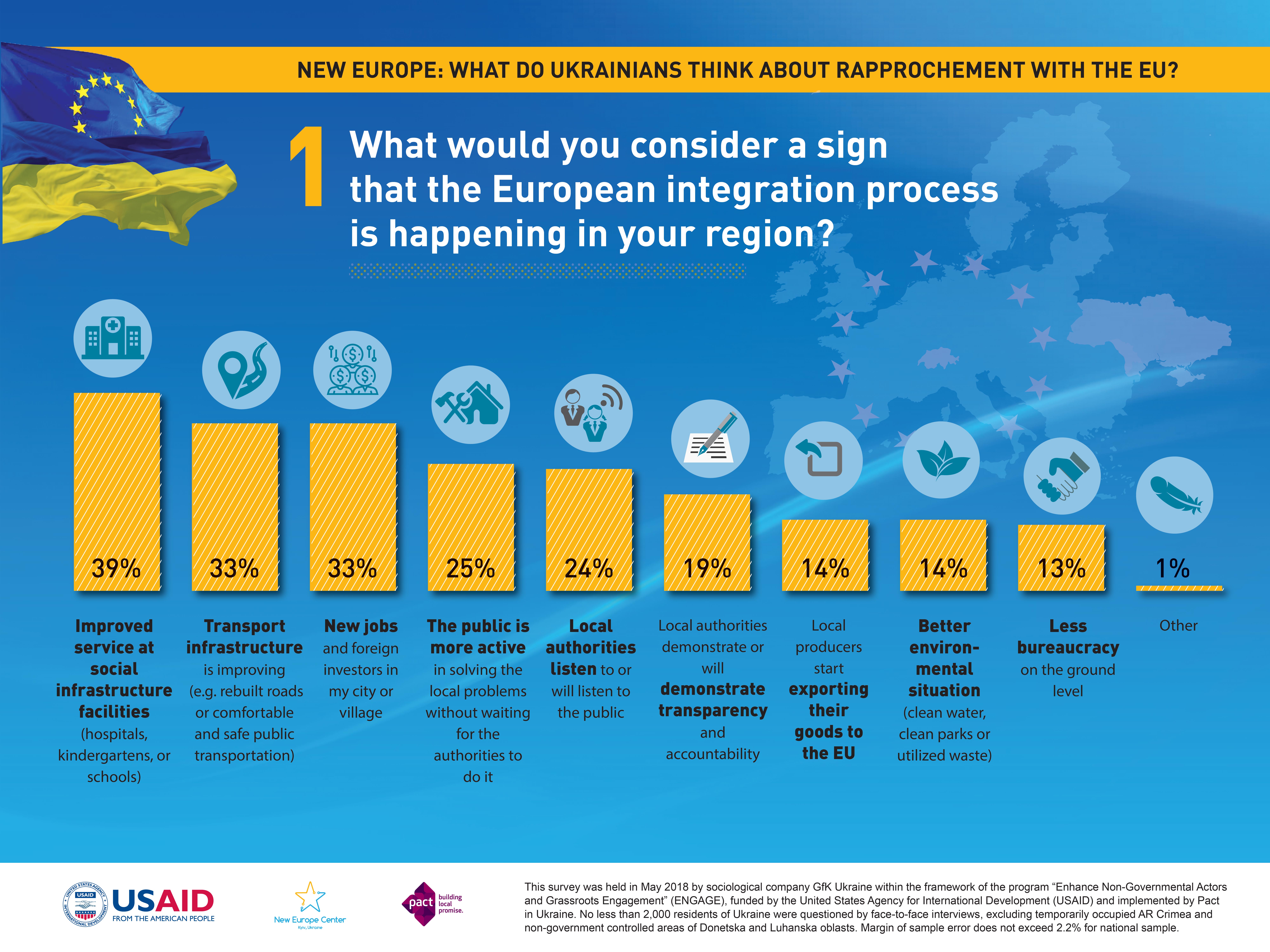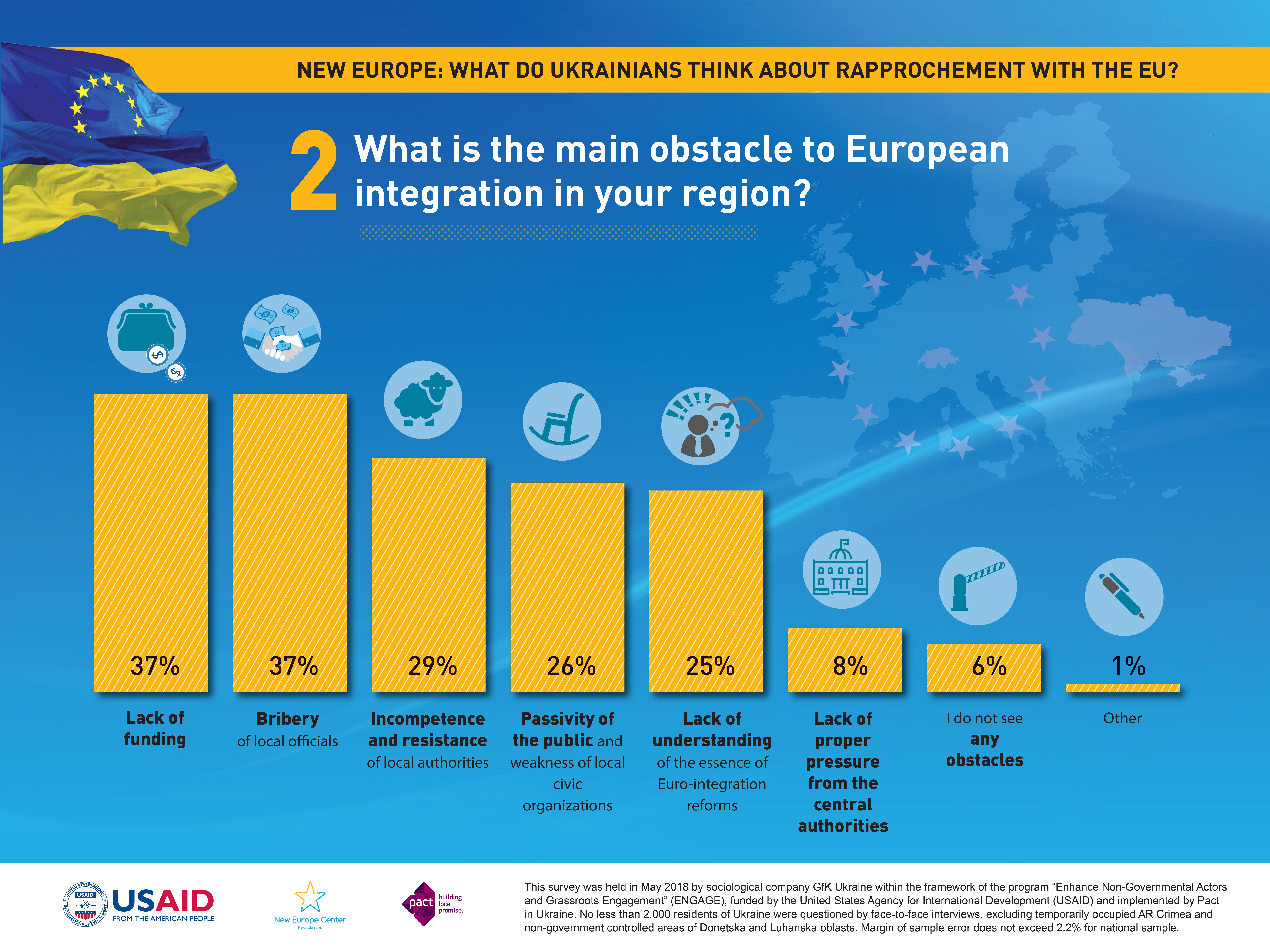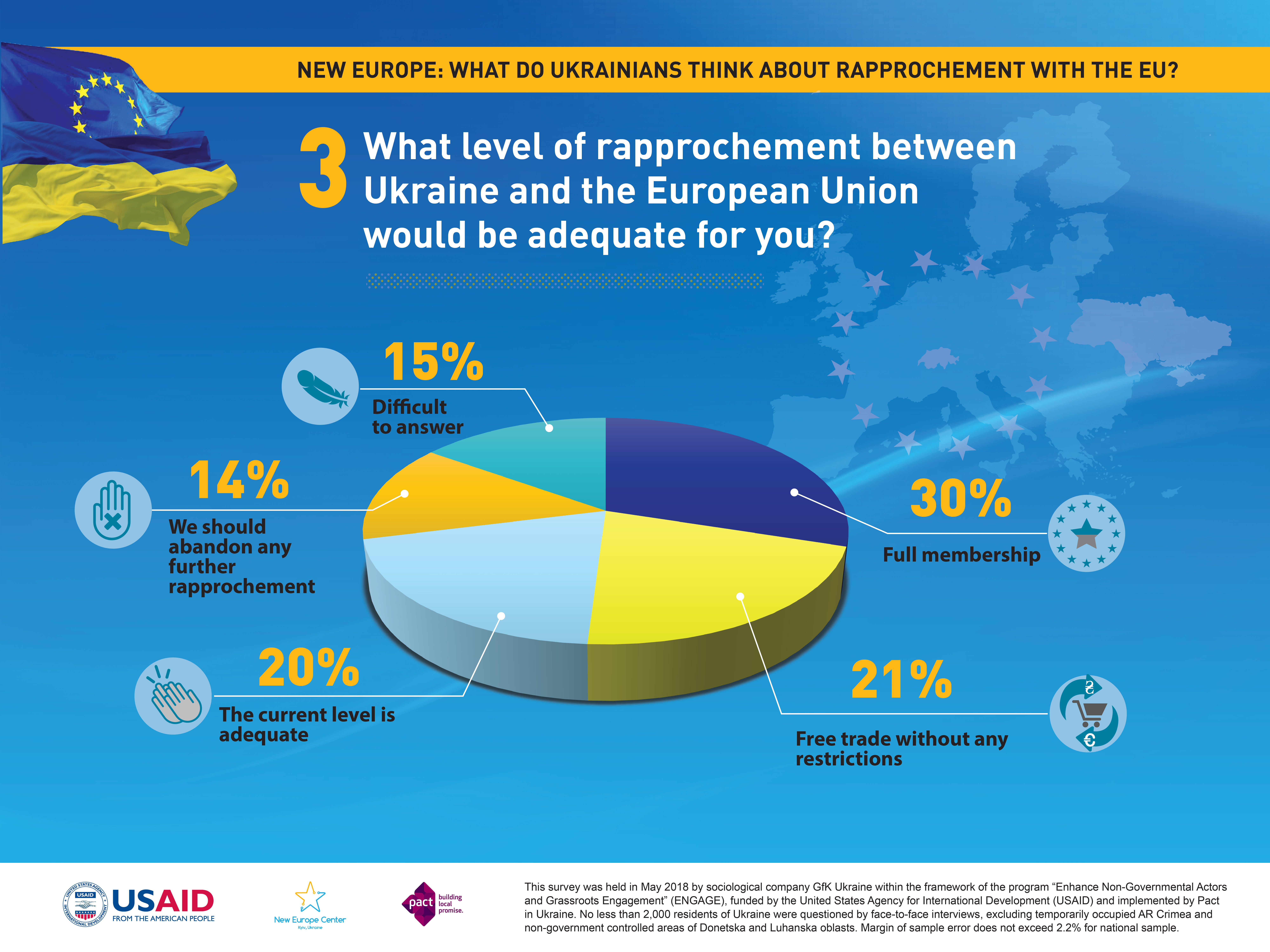At the beginning of the year, the New Europe Center launched a new project to draft a vision of New Europe, that is, a vision of how Ukrainians see themselves in a future Europe. For this vision to be as meaningful as possible, we also began with a series of regional visits. We felt it was important was to persuade Ukrainians living in different cities that, even if the European choice was not ideal, alternatives to it were far worse. It was equally important for us to hear how people perceived the eurointegration process outside the capital. To be able to gain a clearer picture of these attitudes, we even decided to involve GfK Ukraine, a polling company, with the support of USAID/ENGAGE and PACT.
Ultimately, we were interested in finding out what people in various regions saw as evidence that Ukraine was moving—or not, as the case may be—towards Europe. What did they see as the main hurdles to this process in their own oblast? What level of integration with the European Union did they consider the most desirable?
The results showed that, just as we are seeing in domestic politics, there is enormous fragmentation among Ukrainians on the question of eurointegration. Still, certain trends can be distinguished (see slides). The most noticeable one testifies that Ukrainians will believe in the success of European integration when they begin to see an improvement in services at hospitals, kindergartens and schools. Nearly 40% of Ukrainians consider this the clearest indicator that eurointegration has reached their oblast. In other words, Europe continues to have a social face for Ukrainians. For about 35% of Ukrainians, successful eurointegration will be evident in better transport infrastructure: rebuilt roads, safe and comfortable public transportation. A similar number of those surveyed said that successful European integration would bring new jobs and foreign investors.
Among the two obstacles to European integration at the oblast level, Ukrainians name bribery among local officials and the lack of budget funding. The most unexpected, at least for me personally, were answers about what level of closeness between Ukraine and the European Union would suit the residents of a given oblast. It turned out that full membership, for whose prospects Ukrainian diplomats keep desperately fighting, matters to only about 33% of Ukrainians. However, this was also the most popular choice. The next most popular choice was free trade without any restrictions. The top three responses wrapped up with “the current level is fine.”
Only 14% of Ukrainians said that Ukraine should stop trying to get closer to the EU altogether. Here, the regional factor was fairly significant—and predictable. The desire for full membership in the EU was strongest in Ukraine’s western oblasts at 54.5%, while in eastern oblasts attitudes were worse than indifferent to EU membership: only 13.2% support it. The largest proportion of Ukrainians who think Ukraine should stop trying to get closer to the EU were 25% of the residents in the free territories of eastern oblasts.
These results clearly show that the Europe imagined by the Kyiv political class is somewhat out of sync with the imagination of ordinary Ukrainians outside the capital. What is common is only that nearly all of us would like to live in Europe without leaving Ukraine.
Read the original article on the “Українська правда. Блоги”










